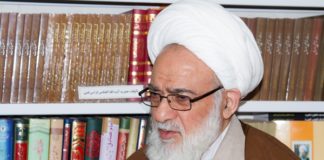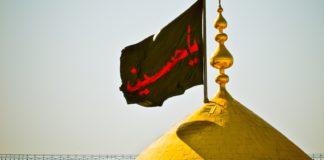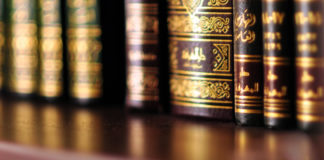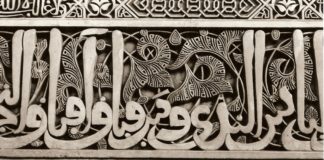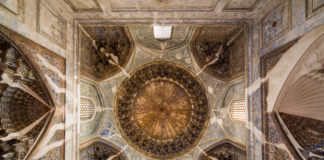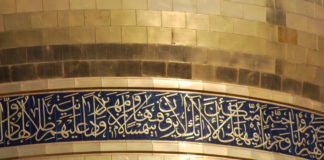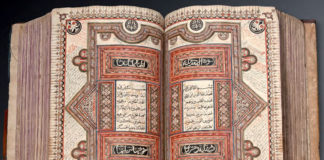Qurʾanic Taʾwīl: Comparing the Views of Ibn ʿArabī and ʿAllāmah Ṭabāṭabāʾī
Explaining the Qurʾan is called taʾwīl, literally "the returning of a thing to its origin." Yet the question remains: what origin or reality is it returned to?
Discovering the Unseen: An Interview on Istikhārah with Shaykh Muḥammad ʿAlī...
In those times of dire decisions, there is the istikhārah. In an brief interview, Shaykh Muḥammad ʿAlī Girāmī explains this "consultation of God," and what it entails.
The Qurʾanic Biography of Imam Husayn: A Translation of Sayyid al-ʿUlama’s...
Imam al-Husayn exemplifies the core ethical and spiritual principles of the Qurʾan throughout his life. In this treatise, Sayyid ul-ʿUlamāʾ outlines an exegesis of the Imam's life "as given in God's Words."
Tadwīn al-Ḥadīth: The Prohibition of Hadith & the Prophetic Legacy
Sayyid Ahmad al-Madadi discusses the early development of hadith, and why the ban on writing hadith could not have been by the Prophet's command.
Understanding Sacred Speech: An Interview with Shaykh Rizwan Arastu
Shaykh Rizwan Arastu delves into how to bridge the vast gulf between ourselves and our sacred sources of guidance, that is, the Ahl al-Bayt and the Qurʾan.
None Know except the Knowing: Ahl al-Bayt & their Knowledge of...
Can anyone fully understand God's Words? Only those who first received those Words and inherited them, al-Fayd al-Kashani argues.
Ṣarfah: An Examination of the Debate on the Nature of the...
In a research article, Syed Shiraz Agha evaluates the various arguments Islamic scholars presented on the nature of the Qurʾan’s miracle, as they contemplated the profundity of Islam’s most sacred text.
“The Book of God and My Family Shall Never Part Ways”
Professor Aun Hasan Ali illustrates in this essay the pivotal relationship between the Qurʾan and hadith, and how indispensable hadith is in allowing us access to Islamic law.
Is the Qurʾan a Legal Text: Law and Morality in Islam’s...
Hasan Kashani, in an article on how the Qurʾan portrays law, describes the integral relationship between Islamic law and morality, a synergy foreign to our modern conceptions of secular law and the modern state.
Opening Our Eyes to the Light of the Qurʾan
Ustadah Fatemah Meghji, in an essay drawing from the teachings of Ayatullah Jawādī Āmulī, calls the reader of the Qurʾan back to a fundamental principle: that the Qurʾan is primarily a source of Divine wisdom & guidance, not a store of mundane facts & information.


